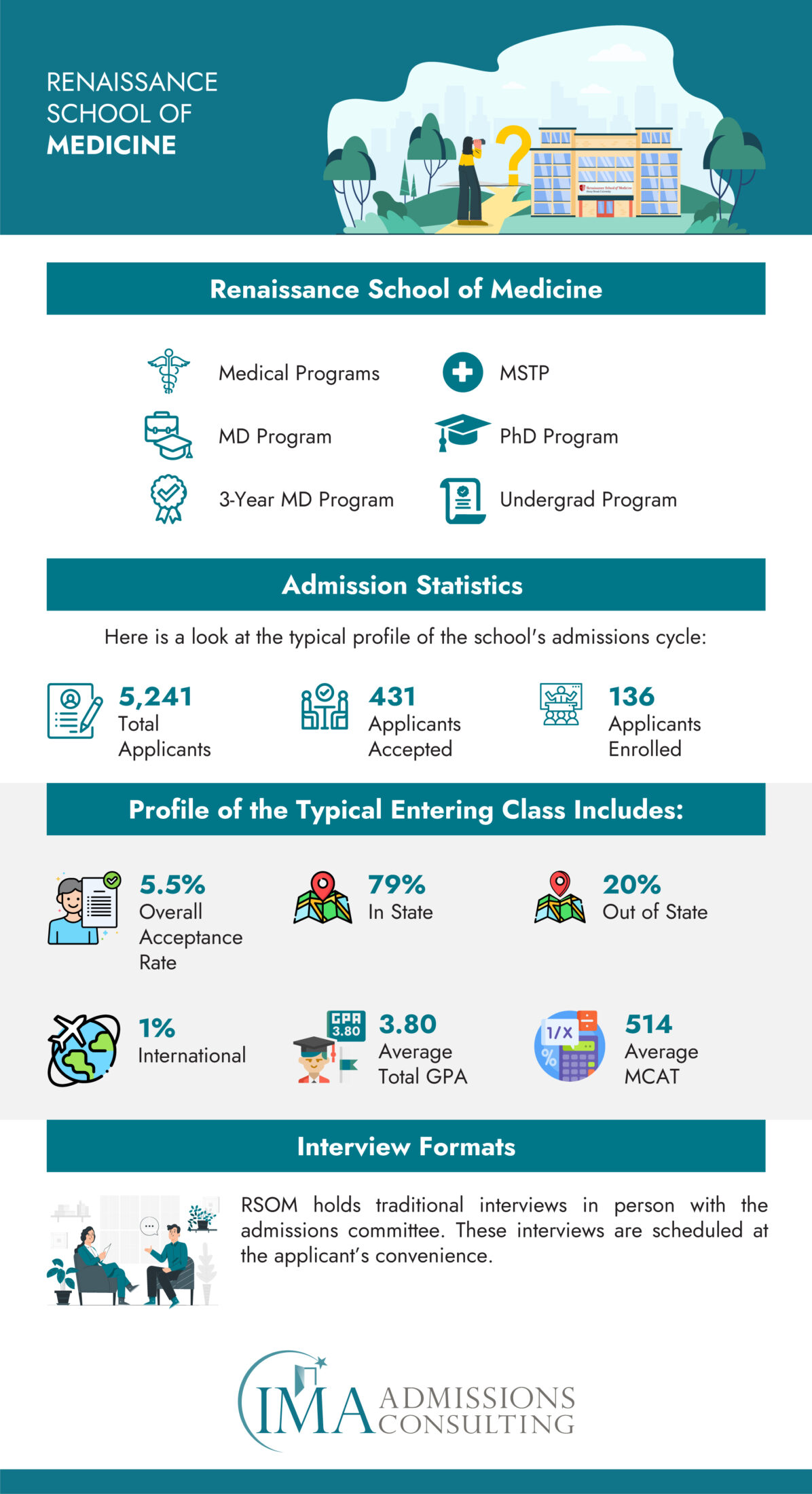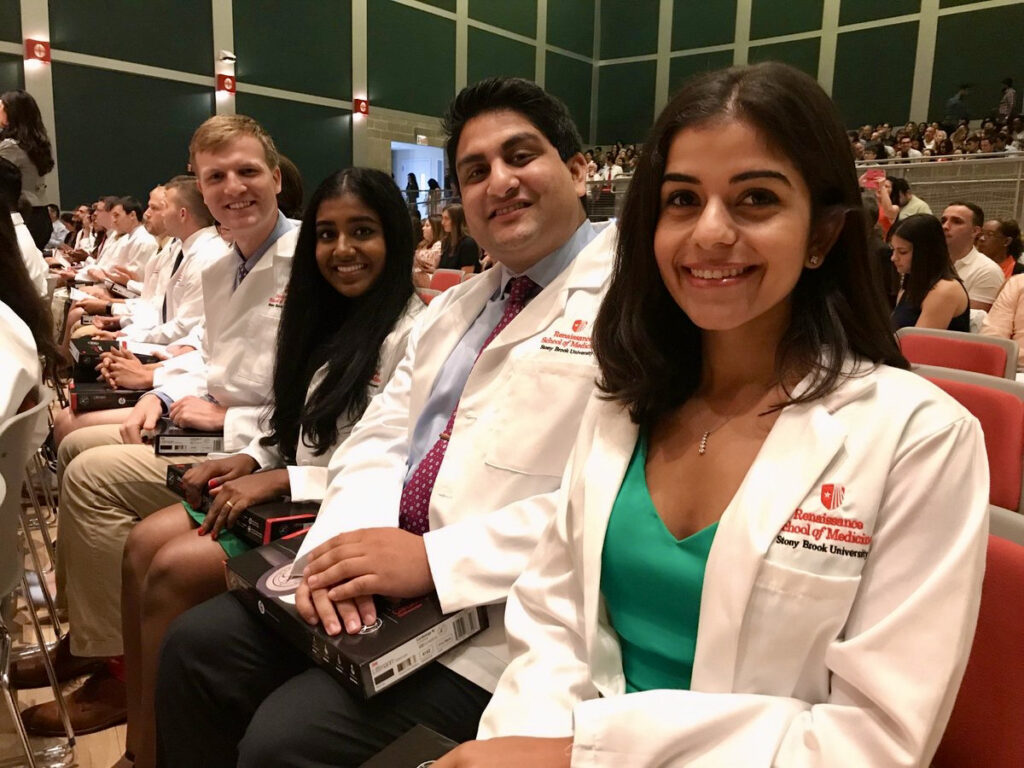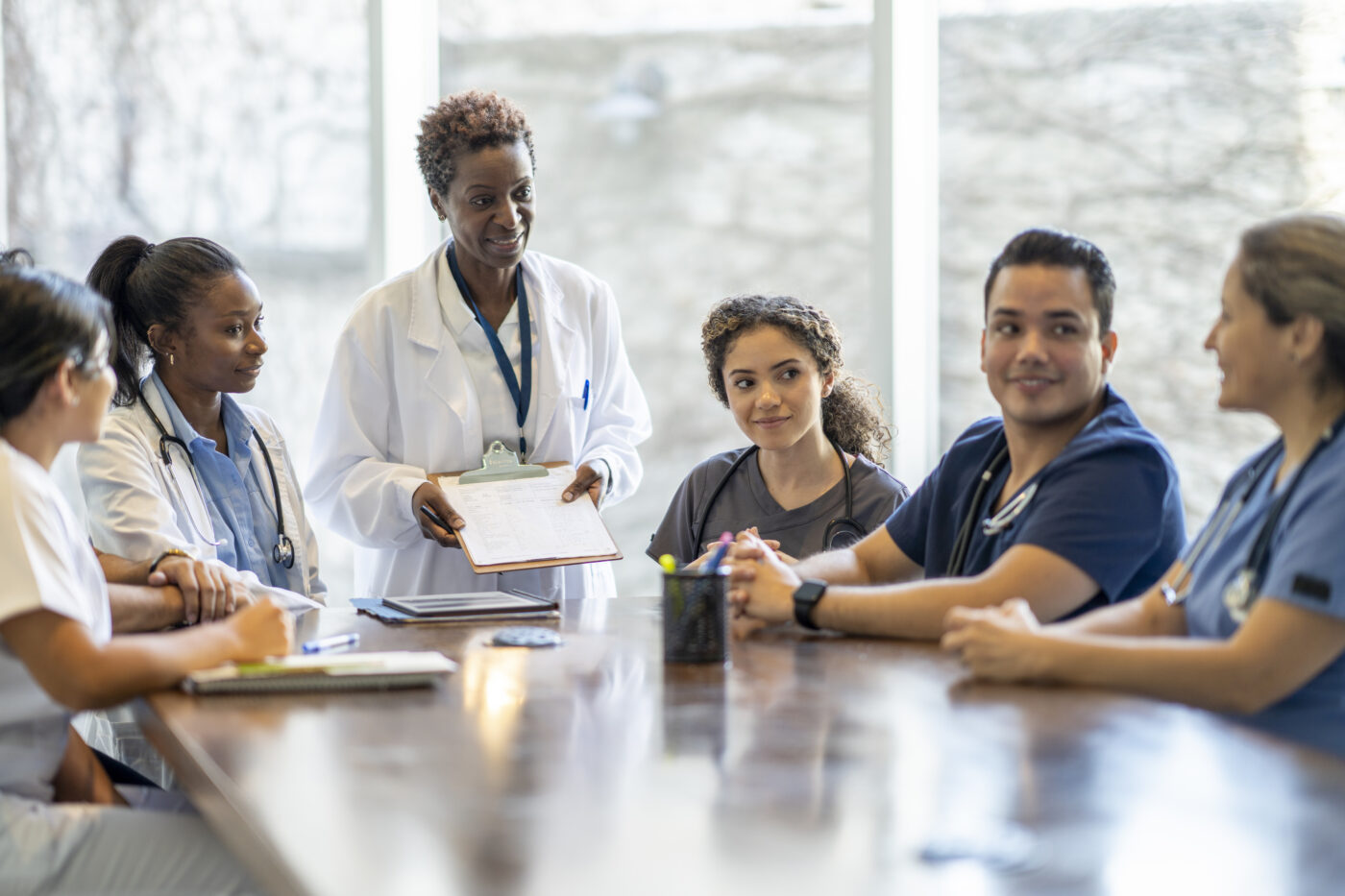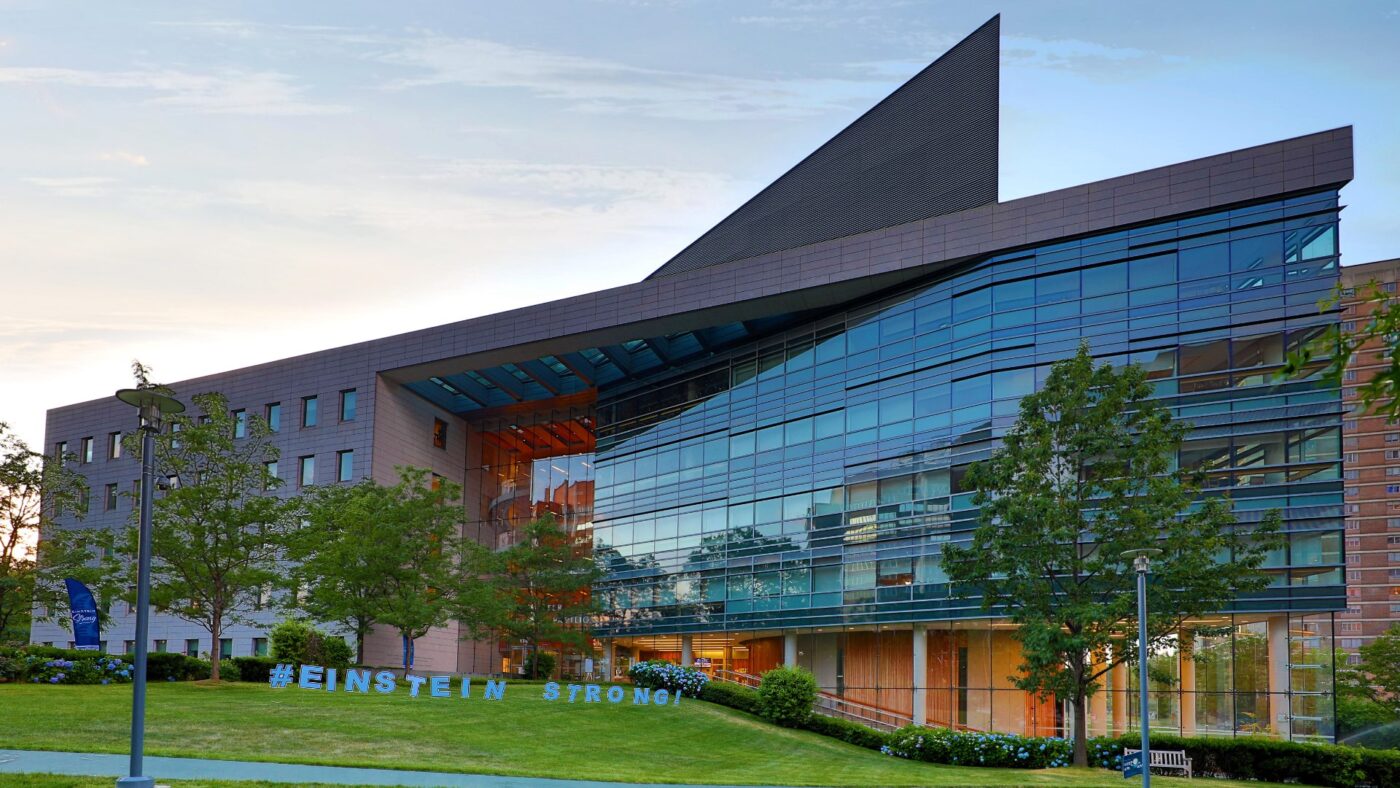The Renaissance School of Medicine is a public medical school that is part of Stony Brook University School of Medicine. The college is connected to a variety of medical facilities such as the Stony Brook Children’s Hospital, Stony Brook Medical Hospital, and the Long Island State Veterans Home. The university is one of 62 members of the AAU (Association of American Universities) which is an invite-only organization for the best research colleges within North America.
Per the university’s mission statement, the primary goals of Renaissance School of Medicine are to advance the medical sciences, develop a diverse cadre of caring and skilled medical professionals, deliver compassionate care, and reach out to multiple communities. You can read the full mission statement for Stony Brook University School of Medicine on their website.
Be an Informed Applicant
While a public university, the Renaissance School of Medicine still has many specific requirements and guidelines that applicants must meet if they wish to obtain a spot in the college’s medical program. Developing a thorough understanding of what academic and non-academic qualities the school is looking for can help applicants curate a more competitive and compelling application.
This article covers:
- Renaissance School of Medicine Rankings
- Medical Programs at the Renaissance School of Medicine
- Selection Factors: What Renaissance School of Medicine Looks for in an Applicant
- Academic Requirements
- Stony Brook University School of Medicine Acceptance Rate, Class Profile, and More
- AMCAS Primary Application and Renaissance School of Medicine Secondary Application
- Renaissance School of Medicine Secondary Application: Essay Prompts, Sample Answers, and Advice
- Medical School Admissions Consulting
- Voluntary Healthcare Internships Abroad
Personalized Help
We understand that applying for medical school programs can easily become stressful and many students begin to feel lost and in over their heads while trying to navigate all the requirements.
International Medical Aid seeks to make this time as stress-free as possible for aspiring physicians. We want to help you succeed and be accepted into the college of your dreams. IMA accomplishes this by providing students with medical school admissions consulting services.
Our friendly and helpful medical school admissions consultants help students with their applications by working one-on-one with them to develop a strong application strategy, edit their secondary application essays, and offer feedback on potential areas of improvement.
To learn more about IMA’s medical school admissions consulting and schedule a free consultation, check out our admissions consulting webpage.
Why the Renaissance School of Medicine?
The college was established in 1971 and was originally referred to as the Stony Brook University School of Medicine. In 2016, the university entered into a partnership with another well-known New York medical college, Mount Sinai Health System and the Icahn School of Medicine. The two partnered together for collaborative research, education, and clinical care programs.
In 2018, the college’s name officially changed to Renaissance School of Medicine in recognition of the philanthropic investments of 111 families at Renaissance Technologies.
The school’s connection to the Stony Brook Hospital lends the opportunity for students to work near and around many esteemed physicians such as Dr. Raphael Davis. Dr. Raphael Davis is also a faculty member of the Renaissance School of Medicine. He currently holds a position as chairman.
Renaissance School of Medicine Rankings
- #53 in Best Medical Schools: Research
- #94 in Best Medical Schools: Primary Care
- #97 Most Diverse Medical Schools
- #127 in Most Graduates Practicing in Medically Underserved Areas
- #154 in Most Graduates Practicing in Primary Care Fields
- #141 in Most Graduates Practicing in Rural Areas
Medical School Programs at Renaissance School of Medicine
Before applying to the Renaissance School of Medicine, it is essential that students conduct thorough research about not only the school’s requirements but also the school’s medical programs.
The Renaissance School of Medicine offers several medical programs for students to choose from. In this article, we will discuss the school’s 3 year MD program and dual degree options.
Three-Year MD Program
The standard Learn curriculum that Renaissance School of Medicine utilizes takes 149 weeks to complete. However, students who are accepted into the 3-year MD program are able to complete this program within 135 weeks.
Some of the key benefits of the program includes:
- Saving time and tuition costs
- Develop a long term mentoring relationship
- A direct pathway into the RSOM at SBU residency program
- Entering the workforce a year early
Other Degrees Offered by RSOM
Aside from the standard MD programs, Renaissance School of Medicine offers a few unique degree options.
MSTP Program
Graduate Medical Education (PhD)
UGME (Undergraduate Medical Education)
Selection Factors: What Renaissance School of Medicine Looks for in an Applicant
Curious about what the Renaissance School of Medicine is looking for in an applicant—GPA, MCAT scores, and internships?
Most medical colleges take a holistic approach when reviewing incoming admissions applications. This means an evaluation of a student’s entire application and attempting to get the big picture idea of who the applicant is both as a candidate and a person. The AAMC Core Competencies serve as a guide during the application and review process.
Application Requirements for Renaissance School of Medicine
The Renaissance School of Medicine has many requirements that applicants must meet including required coursework, the CASPer exam, and letters of recommendation.
MCAT and GPA Requirements
While RSOM does not require a minimum MCAT or GPA score to apply, the college has an acceptance rate of 5.5% and is highly competitive. Students hoping to be accepted into the college’s medical program should aim to have a GPA and MCAT score similar to that of the previous class.
Per data provided by RSOM, the most recent class has an average cumulative GPA of 3.80 and MCAT scores that fall within the 90th overall percentile.
Applicants who want to be a part of the 2023 entering class must provide an MCAT score no older than January 17, 2020. If your MCAT score is older than the specified date, you should consider registering for one of the upcoming MCAT test dates.
RSOM Letters of Recommendation
The Renaissance School of Medicine admissions committee prefers applicants to provide letters of recommendation written by a premedical or pre-health advisor. If you are unable to provide a LOR from such an official, Renaissance School of Medicine will accept letters of recommendation written by two separate instructors at your institution.
Ideally, one of the two instructors should be in the science field. However, RSOM does welcome any letters of recommendation written by any individual who can speak to your strengths and provide important information about your potential candidacy.
Required Coursework for Renaissance School of Medicine
The following premedical coursework is highly recommended but not required by the Renaissance School of Medicine. At this time, RSOM does not have any required courses, only those which they highly suggest applicants complete prior to applying.
The recommended courses for RSOM include:
Biology – 2 Semesters With Labs
Chemistry – a minimum of 4 semesters including coursework in both organic and general chemistry and a course in biochemistry. A minimum of 3 semesters of labs in Chemistry is highly recommended
English/Writing – 1 Semester
Physics – 1 Semester With Lab
Social Sciences/Humanities – 1 Semester
Statistics – 1 Semester
International students are required to complete a minimum of 1 year of coursework in the United States, with the exception of Canadian students.
Does the Renaissance School of Medicine Require the CASPer test?
A CASPer test is an online test provided by Altus that serves the purpose of helping a college’s admissions committee learn more about an applicant from a non-cognitive standpoint.
Currently, the Renaissance School of Medicine does require all applicants to complete the CASPer test to be considered for admission.
RSOM Acceptance Rate and Admission Statistics
Overall, the Renaissance School of Medicine has an acceptance rate of 5.5% which is on par with the national average. Let’s take a closer look at the stats for the most recent entering class.
- 5,241 Applications
- 431 Acceptances
- 136 Matriculants
- 79% In-State
- 20% Out of State
- 1% International

Renaissance School of Medicine Tuition and Cost of Attendance
Those who want to attend RSOM should budget for tuition expenses as well as living costs and incidentals. The university provides the tuition costs for in state and out of state students.
Year 1:
- $43,670 for Tuition
- $33,955 for Living Costs and Incurred Expenses
- $77,625 Total for in State Students and $99,115 for Out of State Students
Year 2:
- $43,670 for Tuition
- $33,955 for Living Costs and Incurred Expenses
- $77,625 Total for in State Students and $99,115 for Out of State Students
Year 3:
- $43,670 for Tuition
- $36,955 for Living Costs and Incurred Expenses
- $80,625 Total for in State Students and $102,115 for Out of State Students
Year 4:
- $43,670 for Tuition
- $36,955 for Living Costs and Incurred Expenses
- $80,625 Total for in State Students and $102,115 for Out of State Students
AMCAS Primary Application and RSOM Secondary Application
The AMCAS primary application is utilized by most medical schools. The AMCAS primary application takes a standard timeframe of 4 to 6 weeks for admission committees to review.
After receiving and reviewing your AMCAS application, you will receive an invitation to complete Renaissance School of Medicine’s secondary application if you are a good fit for the college. Please note that you will not be invited to complete RSOM’s secondary application if you do not meet the admission requirements previously outlined.
If you feel you need more clarification, check out our article about understanding the difference between primary and secondary applications.

Renaissance School of Medicine Secondary Application: Essay Prompts, Sample Answers, and Advice
When applying to med schools, one of the most important steps in completing a college’s secondary application. The secondary application process gives applicants a chance to showcase their unique personal experiences and personality.
To help you succeed at this step in the medical school application process, utilize our top tips.
- Take Your Time to Read Each of the Essay Prompts Carefully
- Support Your Answers and Experiences With Concrete Evidence
- Provide Unique Information That Was Not in Your Amcas Application
- Edit Your Answers
- Write in a Clear and Concise Manner
- Utilize Ima’s Medical School Admission Consulting Service
The secondary application for RSOM consists of 3 essay prompts, some of which are two-part questions.
Essay #1
Will your education be continuous between college and medical school matriculation? (If no, you have 500 words)
This essay prompt will not apply to the majority of applicants. However, if you do intend to take a gap year(s) between undergraduate school and medical school, it is important to explain why you are doing so thoroughly.
Here is a sample answer:
I intend to take a gap year after completing my undergraduate degree. My reason for doing so is to pursue additional clinical and volunteer opportunities which will hone my doctoring skills and patient care skills.
I have already lined up several unique and promising volunteer and internship programs, including a pre-med shadowing study abroad program through International Medical Aid. During my gap year, I hope to further my passion for medicine and add crucial clinical experiences to my application which will make me a more competitive candidate for Renaissance School of Medicine and allow me to achieve my career goal of working with Stony Brook Neurosurgery or Stony Brook Cancer Center.
Essay #2
Describe an obstacle you’ve overcome and how it defined you (500 words)
This prompt provides applicants with an opportunity to display their personality and resilience. You can tell the committee about any obstacle, no matter how big or small, that you have overcome.
Here is a sample answer:
The largest obstacle I have had to overcome occurred during the peak of the global pandemic. As the pandemic began wreaking havoc across the country, shutting down businesses and schools, my college transitioned from in-person classes to online classes.
I was unfamiliar with online classes and quickly found they were not the best fit for me. However, this was my only option for receiving my education. I attempted to make the best of it, but I quickly found myself falling further and further behind and saw my grades drop lower and lower. The stress of not grasping the educational concepts, navigating a learning style that wasn’t ideal for me, and watching my GPA suffer because of it quickly sent me on a spiral. My semester GPA plummeted, and I started to feel as though I would never be able to meet the Stony Brook Medical School requirements or the requirements of any grad school for that matter.
I had considered throwing in the towel many times, but instead, I sought out the help of a professional tutor who was willing to meet with me one-on-one and help me bring my GPA back to good standing. With hard work and perseverance, plus the help of an excellent tutor, I was able to put myself back on track to meet all the necessary med school requirements.
Essay #3
Respond to one (500 words):
(A) Please describe how you, as a future physician, plan to address the social determinants of health. OR (B) What, in your opinion, is the role of a physician in addressing systemic racism and societal injustices?
You can choose to answer either portion of this prompt. We recommend answering the part that holds the most significance to you or the one you feel you can offer the most compelling answer to.
Here is a sample answer:
In my opinion, physicians play a vital role in helping tackle and address systemic racism and societal injustices. Oftentimes, BIPOC individuals face racism in the healthcare system whether it be that their symptoms are brushed off, they are believed to be drug seeking, or their pain levels are dismissed.
From my perspective and viewpoint, I believe the only true way of breaking down this harmful racism in the healthcare industry starts with physicians. Physicians from all walks of life need to learn to be more accepting and willing to listen to the concerns of others, no matter their race or ethnicity. Each patient should be treated the same and receive the same level of care.
Medical School Admissions Consulting
At International Medical Aid, we make it a point to provide thorough and informative content to all students who are aspiring physicians. We understand that applying and getting into medical school is hard work, and above all else, we want you to succeed.
By far, the best way to boost your application is with the guidance and help of an admissions consultant. Regardless of if you need help writing your application essays, developing an application strategy, or navigating the application process, IMA is here to help.
If you are interested in learning more about medical school admissions consulting, please take a moment to schedule a free consultation with us.
Voluntary Healthcare Internships Abroad
The voluntary healthcare internships offered by IMA gives aspiring medical students an opportunity to shadow doctors, work in clinic environments, and gain valuable knowledge and experience in the medical field. The internships are intense and patient-facing. Aspiring medical students can gain real-life clinical and hospital experience through the pre-med shadowing study abroad program, which will further prepare them for medical school.
These internships extend beyond helping you create a compelling and unique application for the Stony Brook Med School. We seek to serve struggling populations around the globe through the pre-med shadowing study abroad program. Through this internship, you can develop your doctoring skills, broaden your perspective, serve the medically underserved, and gain insight you will carry with you throughout your medical career.
Good Luck!
We want to wish you the best of luck as you begin the process of navigating the medical school application process. Remember to take your time and don’t hesitate to ask for help when and if you begin to feel overwhelmed by the application process.
At IMA, we know that applying for a medical school program is often an overwhelming and difficult process. For help curating your application, assistance with secondary application essays, and prepping for your upcoming semester, utilize IMA’s Admission Consulting Services.
If you are considering applying to other New York medical colleges or want to know “what are the best medical schools near me”, we have ultimate guides for most med schools on our site. Don’t forget to check out our other ultimate school guides, especially if you’ve been asking yourself, “what are the best medical schools near me?”
- Albert Einstein College of Medicine
- Ohio University Heritage College of Osteopathic Medicine
- Northeast Ohio Medical University (NEOMED)
- University of Cincinnati College of Medicine
- University of Toledo College of Medicine
- Wright State University Boonshoft School of Medicine
- Ohio State University College of Medicine
- Rowan University School of Osteopathic Medicine
- Hackensack Meridian School of Medicine (HMSOM)
- Rutgers New Jersey Medical School (NJMS)
- Rutgers Robert Wood Johnson Medical School
- Cooper Medical School of Rowan University (CMSRU)
- A.T. Still University Kirksville College of Osteopathic Medicine
- Saint Louis University School of Medicine
- University of Missouri Medical School
- Kansas City University (KCU)
- UMKC School of Medicine
- New York Medical College
- University of Pittsburgh School of Medicine
- University of Wisconsin Medical School
- VCU School of Medicine
- University of Maryland School of Medicine
- Case Western Medical School
- University of North Carolina Medical School
- University of Florida Medical School
- Emory University School of Medicine
- Boston University College of Medicine
- California University of Science and Medicine
- UC San Diego Medical School
- California Northstate University College of Medicine
- Touro University of California
- CHSU College of Osteopathic Medicine
- UC Davis School of Medicine
- Harvard Medical School
- UC Riverside School of Medicine
- USC Keck School of Medicine
- UT Southwestern Medical School
- Long School of Medicine at UT Health San Antonio
- University of the Incarnate Word School of Osteopathic Medicine
- UT Austin’s Dell Medical School
- UTMB School of Medicine
- McGovern Medical School at UT Health
- Johns Hopkins School of Medicine
- McGovern Medical School at UT Health
- The University of Texas Rio Grande Valley School of Medicine
- UNT Texas College of Osteopathic Medicine
- University of Houston College of Medicine
- Texas A&M College of Medicine
- Johns Hopkins Medical School
- Baylor College of Medicine
- George Washington University School of Medicine
- Vanderbilt University School of Medicine
- St. George’s University School of Medicine
- Lake Erie College of Osteopathic Medicine (in Pennsylvania)
- Sidney Kimmel Medical College at Thomas Jefferson University
- Wake Forest University School of Medicine
- Western University of Health Sciences (in California)
- Drexel University College of Medicine
- Stritch School of Medicine at Loyola University Chicago
- Georgetown University School of Medicine
- Yale School of Medicine
- Perelman School of Medicine
- UCLA Medical School
- NYU Medical School
- Washington University School of Medicine
- Brown Medical School







